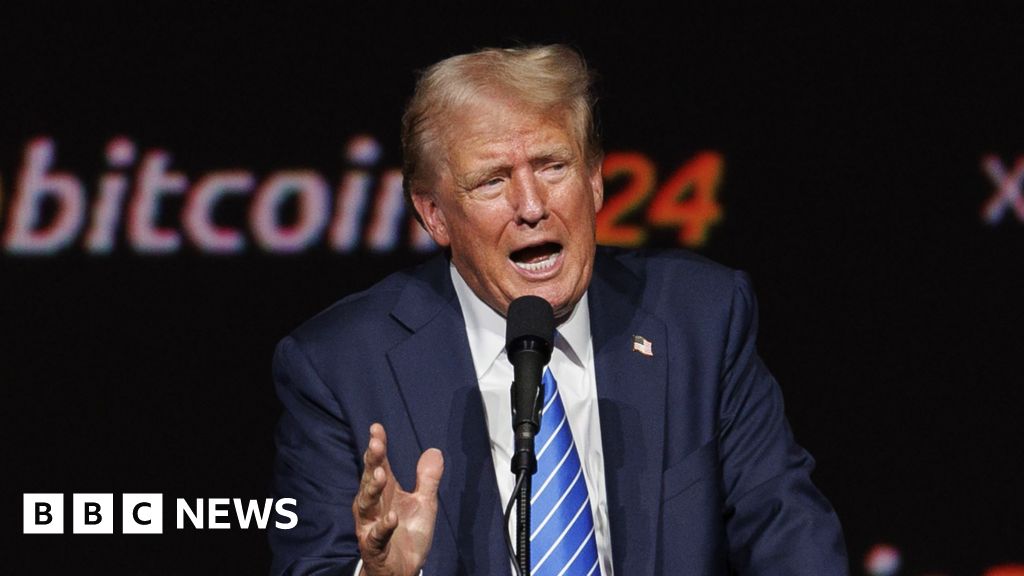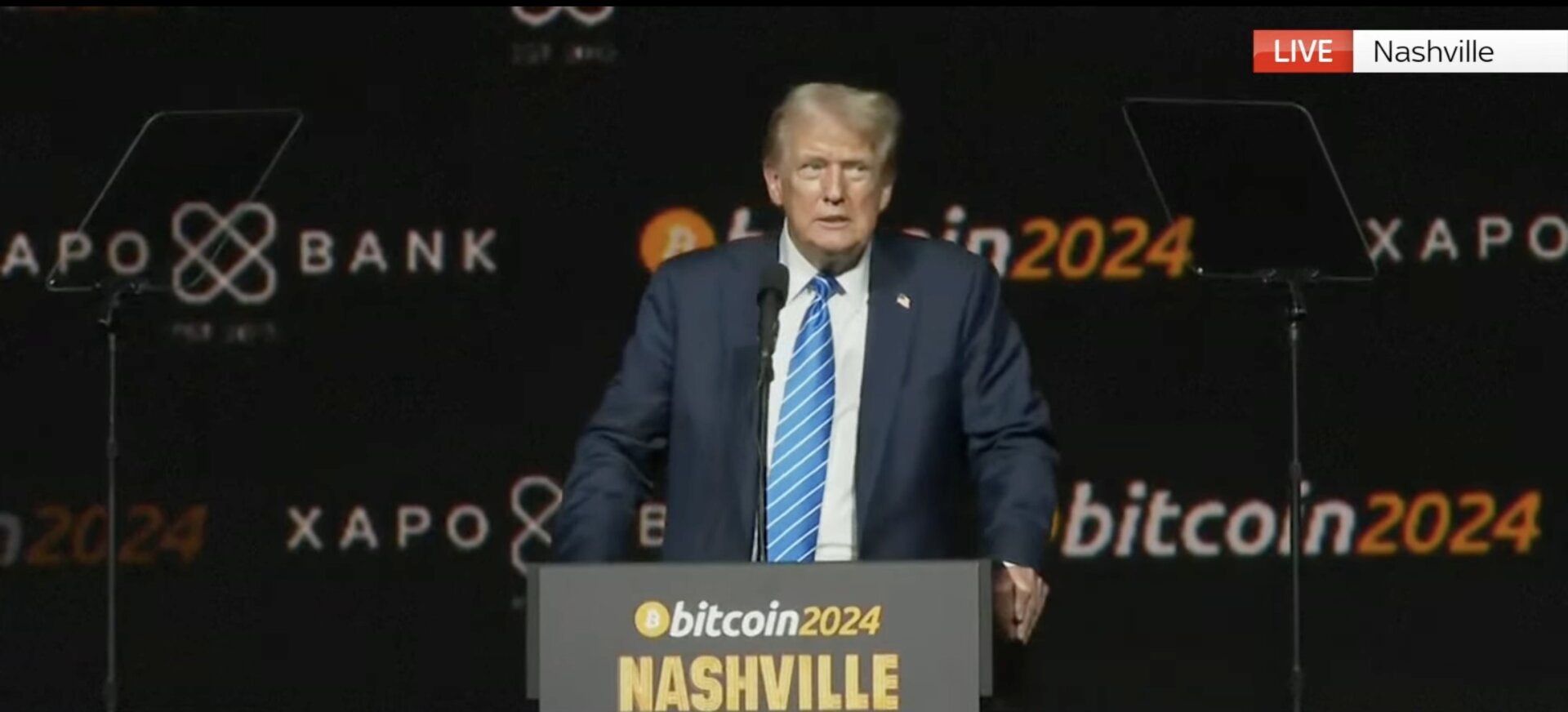Tech
Alchemy Launches ‘Pipelines’ to Streamline How Blockchain Engineers Extract Data

April 24 (PROTOCOL VILLAGE EXCLUSIVE): Alchemy, a blockchain development firm, launched “Pipelines,” a new tool that allows engineers to build and maintain a data pipeline with just a few clicks, according to the team: “This is Alchemy’s first indexing product since it acquired Satsuma last year. A data ‘pipeline’ is how engineers extract data from a ‘source’ and send it to a ‘destination’ – often a database owned by the engineers. Before Pipelines, this process could take engineers up to a week to set up. With Pipelines, a single engineer can set up a data pipeline in under five minutes and start getting data almost immediately, saving Web3 projects hefty engineering costs and time.”
Chainlink’s CCIP Enters ‘General Availability’ for Permissionless Use
April 24: The Chainlink Cross-Chain Interoperability Protocol (CCIP) has officially entered “general availability,” or “GA,” according to the team: “Any developer can now permissionlessly use CCIP to securely transfer onboarded tokens cross-chain, send arbitrary messages to smart contracts on another blockchain, or simultaneously send data and value together through CCIP’s unique support for Programmable Token Transfers. Supported blockchains include Arbitrum, Avalanche, Base, BNB Chain, Ethereum, Kroma, Optimism, Polygon, and WEMIX, with many more to come in the future.”
Metis Decentralized Sequencer Upgrade Adds New ‘Mining’ Feature
April 23: Metis unveiled phase 2 of its decentralized sequencer, adding new technical features and introducing “Sequencer Mining” for users, according to the team: “With Sequencer Mining, sequencer nodes will earn METIS tokens for their role in processing transactions and generating blocks within blockchain networks using Layer 2. LST providers will operate sequencer nodes, and users will be able to stake via these providers, unlocking liquid tokens in the process. The Metis community chose Artemis Finance and Enki Protocol as the two LST protocols for the Alpha Phase.” (METIS)
Mina Foundation, O1Labs Plan Integration With Celestia DA
April 23: The Mina Foundation and o1Labs are announcing their collaboration with Celestia to integrate Celestia’s modular Data Availability (DA) layer with Mina Protocol and streamline the integration of zkApps in Web apps. According to the team: “This collaboration addresses the issue of ensuring that all data in a blockchain block is published to the network, making it easier to identify a malicious transaction hidden within that block and support secure scaling.”
Ethereum Name Service Integrates With ICANN-Approved Top-Level Domain ‘.Box,’
April 23: Ethereum Name Service (ENS), an open-source blockchain naming protocol, has successfully integrated with .box, an ICANN-approved top-level domain (TLD), according to the team: “Users in both Web3 and Web2 can access email, host websites and interact on Ethereum using a single domain name. By enabling immediate compatibility with mainstream platforms like Google Chrome, Safari, Outlook and G Suite, .box domains facilitate the integration of on-chain digital identities into existing infrastructure, bridging the gap between Web2 and Web3 technologies.”
Galaxy, Lightspeed Lead $15M Raise for Turnkey, Crypto Wallet Startup From Former Coinbase Employees
April 23: Turnkey, a company that builds wallet infrastructure for blockchain developers, has raised $15 million in a Series A funding round led by Lightspeed Faction and Galaxy Ventures. Co-founded by a pair of former Coinbase employees who helped build the U.S. crypto exchange’s custody service, Turnkey aims to help application developers build user-friendly blockchain wallets.
Turnkey co-founders Jack Kearney and Bryce Ferguson (Turnkey)
Protocol Village is a regular feature of The Protocol, our weekly newsletter exploring the tech behind crypto, one block at a time. Sign up here to get it in your inbox every Wednesday. Project teams can submit updates here. For previous versions of Protocol Village, please go here. Also please check out our weekly The Protocol podcast.
Neura, Ankr’s Layer-1 Chain for AI, Releases Public Testnet
April 22: Neura, the EVM-compatible layer-1 blockchain for AI from the team at Ankr, built on Cosmos SDK, just released its public testnet, now available for developers looking to build dApps that fuse AI and Web3, according to the team: “Neura provides solutions to critical AI startup challenges like securing funding, obtaining GPU resources, and storing data efficiently with a novel blend of tech. Neura’s “Road To Mainnet” program will include a developer competition with top projects splitting $100,000 in grants. It will also incorporate rewards for ANKR token holders, with special benefits like receiving the first chance to invest in new AI model tokens.”
DODOChain Launches as ‘Omni Trading Layer3’ Powered by Arbitrum, EigenLayer, AltLayer
April 22 (PROTOCOL VILLAGE EXCLUSIVE): The DODO team, which previously developed the “Proactive Market Maker” algorithm and features including a cross-chain swap aggregator, announced the launch DODOchain, an Omni Trading Layer3, powered by Arbitrum Orbit, EigenLayer, and AltLayer, according to the team: “DODOchain stands as the pioneering layer-3 solution, seamlessly bridging layer 2s of Bitcoin and Ethereum, with a focus on consolidating liquidity from diverse chains.” According to a press release: “DODOchain will leverage EigenDA to utilize Ethereum’s consensus and security features. DODOchain will also work as a restaked rollup, being one of the first Actively Validated Services (AVSs) in the Eigenlayer ecosystem. DODOchain has adopted AltLayer’s novel restaked rollups infrastructure based on EigenLayer’s powerful restaking mechanism. This not only strengthens network security and decentralization but also facilitates rapid deployment and cross-chain interoperability, creating a smoother and more interconnected blockchain experience for users.” A testnet is live.
Omni Network, Interoperability Protocol, Launches Mainnet on Arbitrum and Optimism
April 22 (PROTOCOL VILLAGE EXCLUSIVE): Omni Foundation, supporting Omni Network, which is a layer-1 chain and Ethereum-focused interoperability protocol powered by EigenLayer restaking, announced the launch of Omni Network’s mainnet on the Ethereum layer-2 networks Arbitrum and Optimism. According to the team: “Omni is an L1 to unite Ethereum rollups, offering access to all users and liquidity of the Ethereum ecosystem. The launch follows Omni’s token generation event and airdrop with 3M $OMNI sent to Omni and Ethereum ecosystems.”
Celo Chooses Optimism, Concluding Bake-Off Among Layer 2s
Io.net, Aethir Partner to Create ‘Airbnb of GPUs’
April 22: Io.net, a decentralized network for GPU Compute that raised $30 million in March, and Aethir, a project for decentralized cloud computing, have partnered to create what they’re calling the “Airbnb of GPUs,” merging over 640,000 computing units to democratize supercomputing. According to the team: “This disruptive alliance, announced ahead of a $100M token airdrop, aims to make high-powered computing accessible globally, breaking down cost and geographic barriers.”
Foundation Behind Polkadot Reveals 10M DOT ($74.5M) Prize Pool After Wood Unveils JAM
April 22: Web3 Foundation (W3F), the foundation behind the Polkadot ecosystem, has announced a 10 million DOT ($74.5 million) prize pool, “to foster diversity within the development of JAM, a protocol combining elements of both Polkadot and Ethereum,” according to the team: “Through the JAM Implementer’s Prize, W3F are seeking developers to diversify and strengthen network resilience. One of the key features of JAM is the guaranteed seamless compatibility for developers. W3F’s mission is to nurture cutting-edge applications for decentralized web software protocols.” JAM stands for “Join-Accumulate Machine,” and it provides a “global singleton permissionless object environment, much like the smart-contract environment pioneered by Ethereum, paired with secure sideband computation parallelized over a scalable node network,” according to the graypaper by Polkadot founder Gavin Wood, who was also a co-founder of Ethereum.
Gavin Wood made a presentation on JAM at Token 2049 in Dubai last week. (@mattunchi via Polkadot)
ORA’s ‘On-Chain AI Oracle’ Plans Expansion to Polygon PoS In Addition to Ethereum
April 19: ORA’s OAO (stands for On-chain AI Oracle), describing itself as “the world’s first AI oracle,” is gearing up to launch on Polygon’s PoS network, according to the team: “OAO was called more than 10,000 times in under a month on Ethereum’s Sepolia testnet. In March, OAO was launched on Ethereum mainnet. Now, developers, protocols and dApps will be able to verify and use LLM inferences on Polygon. The OAO (Onchain AI Oracle) launch onto Polygon is critical for scalability, speed and convenience. Developers and users will be able to cheaply and efficiently access verifiable inference data on-chain.”
Telos to Work With R&D Firm Ponos on Hardware-Accelerated Ethereum ZkEVM
April 19: Telos Foundation, which supports the Telos blockchain, said it will work with Ponos Technology, a zero-knowledge-proof research and development firm, to develop an end-to-end optimized, hardware-accelerated Ethereum layer 2 network featuring SNARKtor, the Telos-developed decentralized recursive proof aggregator. According to the team: “Telos will also work with several other new partners during the L2’s development cycle, including Digital M.O.B. (Ethereum dev team), ATKA (Web3 incubator) and Cometh (dev team led by ETH France President Jerome De Tychey).”
Runes DEX Secures $2 Million in Seed Investment to Pioneer AMM on Bitcoin
April 19: Runes DEX, an automated market maker (AMM) platform for runes on Bitcoin, announced the successful closure of its $2 million seed investment round. According to a press release: “This crucial funding milestone has garnered support from prominent blockchain investors including Kenetic Capital, Mechanism Capital, Auros Ventures, Future Fund and Boosty Labs. Notable industry pioneers backing this round are Pascal Gauthier, CEO of Ledger; 0xMaki, founder of SushiSwap; and AOI, founder of AOI.com.”
Safe, for ‘Smart Accounts,’ Completes Acquisition of Crypto Business Wallet Multis
April 18: Safe, a provider of blockchain smart accounts, has “welcomed the senior leadership team of Multis to the Safe Ecosystem Foundation and completed the strategic acquisition of the Multis source code,” according to the team: “Thibaut Sahaghian, former CEO of Multis, will take on the role of network abstraction lead within the Safe ecosystem. Together, the Safe and former Multis team will collaborate to solve the complexities of cross-chain interaction through network abstraction, with the goal of enabling users to manage assets across diverse blockchain networks effortlessly.” Multis offers a crypto business wallet, according to its website.
Thibaut Sahaghian, network abstraction lead, Safe (Safe)
Aethir, Decentralized Network for GPU Resources, Introduces ‘Edge’ Device Powered by Qualcomm
April 18: Aethir, a project for decentralized cloud computing, introduced the Aethir Edge device powered by Qualcomm, “a significant leap in edge computing with a decentralized infrastructure that enhances reliability by distributing capacity across peer nodes,” according to a message from the team. “Aethir Edge is the hardware component of the Aethir DePIN stack, and it is, in all aspects, a hardware device built to power the next generation of GPU cloud computing. Through Aethir Edge, we enable everyone to join Aethir’s network as a service provider who wishes to contribute their underutilized broadband, IP addresses, bandwidth, or GPU computing resources to our DePIN in exchange for 23% of $ATH token rewards,” according to a blog post published Thursday.
Nodle, Smartphone-Based DePIN, Launches on ZkSync Era
April 18: Nodle (NODL), a smartphone-based DePIN powering applications for authenticating media content, locating assets or proving location, announced it will be launching on zkSync Era, an Ethereum layer-2 network built around zero-knowledge (ZK) technology. According to the team: “The first initiative of Nodle’s DePIN launching on zkSync will be the deployment of its new Click camera app, the world’s first Digital Trust Network. This marks a significant advancement for Nodle by using blockchain technology for media authentication to fight misinformation leveraging the scalability and efficiency of zkSync.” Launched in 2017, Nodle was originally based on the Stellar blockchain and later moved to Polkadot.
Crypto Funding Deals in 1Q Surpassed $2B for First Time in a Year: FundStrat
April 18: Tom Couture, vice president of crypto strategy at the analysis firm FundStrat, writes in a quarterly report out Thursday: “The crypto industry saw over $2.3 billion in private funding across 367 deals, marking a significant increase in activity and the first time total funding has surpassed $2 billion since Q2 of 2023. Infrastructure remained the most popular investment category, attracting nearly $1.1 billion across 141 deals, reflecting ongoing industry efforts to enhance scalability and user experience.”
After a dip, crypto industry private funding appears to be turning back up. (FundStrat)
Ordz Games Says ‘BitBoy One’ Sold Out First 1K Units in 2 Minutes
April 18: Ordz Games said its new GameFi-meets-DePIN handheld device, “BitBoy One,” sold out its first 1,000 units in two minutes during a public sale, after launching in Paris, Hong Kong and Dubai. The device was featured in Protocol Village on April 7.
ARPA’s On-Chain Random Number Generator, Randcast, Launches on Lattice’s Redstone Testnet
April 18: ARPA Network, a secure computation network for blockchain-adapted cryptography, said its Randcast, an on-chain verifiable random number generator, has launched on the testnet for Redstone, an optimistic rollup layer-2 framework crafted by the Ethereum-focused engineering company Lattice, built on the OP Stack, according to the team: “The integration of Randcast with Redstone pushes more seamless and enriched on-chain gaming experiences. Together, this streamlines the developer experience for those crafting ambitious applications, games and worlds. Randcast’s dev-friendly Smart Contract SDK allows for the effortless integration of randomness, so with the Redstone integration it pushes the limits of what is possible to build on the EVM.”
Nym Joins Liquid Federation to Scale Bitcoin L2 Ecosystem, Deepen Partnership With Blockstream
April 18: Nym Technologies, a blockchain privacy infrastructure project, has joined the Liquid Federation to help secure and scale the Bitcoin layer-2 ecosystem to meet global demand, according to the team: “This is the first step in a deeper partnership between Nym, the Liquid Federation and Blockstream. The next step will be the integration of Liquid on the Nym mixnet, extending Liquid’s default confidentiality to also protect the patterns of transactions in transit, and enabling strong network level privacy to Bitcoin users who are using layer-2 protocols to stack sats to save on fees and for greater confidentiality.”
Matter Labs, Developer Behind ZkSync, Hires Former Coinbase Exec Murugesan as President
April 18: Matter Labs, the main developer behind the Ethereum rollup zkSync, hired Nana Murugesan, former vice president for business development and international at Coinbase, as president. At Coinbase, “he oversaw global business development and partnerships, international operations, and asset listings,” according to a press release. “Prior to his time at Coinbase, he served as Managing Director at Snap Inc., where he led Snapchat’s global expansion and strategic partnerships.”
Nana Murugesan (Matter Labs)
Nibiru Blockchain Launches $15M Program ‘to Prevent a Potential Talent Drain’
April 18: Nibiru, a new blockchain backed by Tribe Capital and led by ex-Google, IBM, and JP Morgan execs, is “launching a $15M program, aiming to prevent a potential talent drain amid the crypto market recovery. The initiative, includes a $5M allocation for Asia, will offer financial incentives and funding to developers driving the adoption of a new L1. The goal is to keep talent building in the Web3 space as the industry struggles to retain skilled developers tempted by opportunities in other sectors.”
Aptos Strikes DeFi Partnership With Microsoft, Brevan Howard, SK Telecom
April 18: Aptos Labs, the developers behind the Aptos layer-1 blockchain, said it is collaborating with Microsoft, Brevan Howard and South Korean wireless telecommunications operator SK Telecom to offer institutions a gateway into decentralized finance. The partnership will offer Aptos Ascend, a suite of end-to-end institutional solutions like regulatory requirement help, tools to maintain account and transaction privacy and embedded features for know-your-customer (KYC) checks. (APT)
P2P.org Infrastructure to Power Asia-Focused Digital-Asset Platform Matrixport’s Staking Product
April 18: P2P.org, a provider of non-custodial staking services for professional investors, introduced “restaking with DVT on staking infrastructure SSV Network, recently surpassing 500,000 ETH staked. The new offering leverages EigenLayer technology to provide institutional clients a secure, decentralized staking option. With an APR exceeding 5.6%, it taps into Ethereum and layer-2 chains, endorsed by flagship client crypto financial services platform Matrixport.”
Tech
The Information Hires Peterson to Cover Tech, Finance, Cryptocurrency

My life is nice
Tech news site The Information has hired Business Insider actress to cover technology, finance and cryptocurrencies.
She was part of Business Insider’s investigative team. She was also previously a corporate technology reporter and a technology deals reporter.
Peterson has been with Business Insider since June 2017 and is based in the San Francisco office.
She previously worked for Folio as an associate editor. She holds a bachelor’s degree from the University of California-Davis and a master’s degree from New York University.
Chris Roush
Chris Roush is the former dean of the School of Communications at Quinnipiac University in Hamden, Connecticut. Previously, he was the Walter E. Hussman Sr. Distinguished Professor of Business Journalism at UNC-Chapel Hill. He is a former business reporter for Bloomberg News, Businessweek, The Atlanta Journal-Constitution, The Tampa Tribune, and the Sarasota Herald-Tribune. He is the author of the leading business journalism textbook, Show Me the Money: Writing Business and Economics Stories for Mass Communication, and of Thinking Things Over, a biography of former Wall Street Journal editor Vermont Royster.
Tech
Trump Courts Crypto Industry Votes, Campaign Donations

About the article
- Author, Brandon Livesay
- Role, BBC News
-
July 27, 2024
Donald Trump said at one of the biggest cryptocurrency events of the year that if he is re-elected president, he will fire the chairman of the U.S. Securities and Exchange Commission (SEC) on his first day.
On Saturday, Trump was the keynote speaker at Bitcoin 2024, a gathering of industry heavyweights in Nashville, Tennessee.
The Republican presidential candidate used the event to woo voters and encourage the tech community to donate to his campaign.
Cryptocurrencies have emerged as a political battleground for Republicans, with Trump saying that the Democratic Party and Vice President Kamala Harris were “against cryptocurrencies.”
The crowd was at its most animated when Trump declared, “On day one, I will fire Gary Gensler,” the SEC chairman appointed by now-President Joe Biden. The crowd applauded loudly and began chanting “Trump” at this statement.
SEC files charges against ‘Cryptocurrency King’ Sam Bankman-Frittosentenced to 25 years for stealing billions of dollars from customers of his cryptocurrency exchange FTX.
Speaking for about 45 minutes, Trump outlined some of his ideas for the industry if he wins the November election. He said he would make the United States the crypto capital of the world. His support for the sector is a 180-degree reversal from his comments in 2021, when he told Fox Business he saw Bitcoin as a “scam” that influence the value of the US dollar.
Trump told the crowd at the event that he would retain 100% of the Bitcoin currently owned or acquired by the U.S. government, adding that it would be a “national stockpile of Bitcoin.”
The former president also said he would “immediately appoint a presidential advisory council on Bitcoin and cryptocurrencies.”
He talked about the power needed to mine cryptocurrencies. “It takes a lot of electricity,” he said, adding that he would build power plants “to do that” and that it would “use fossil fuels.”
In recent months, some tech leaders have seen growing support for Trump’s presidential campaign. Tesla founder Elon Musk, who is the world’s richest person, has backed Trump. And cryptocurrency moguls the Winklevoss twins, who attended his speech on Saturday, have also come out in support.
Trump noted that his campaign accepts cryptocurrency donations, saying that in the two months since allowing cryptocurrency transactions, he has received $25 million (£20 million) in donations. However, he did not say how much of the payments came from cryptocurrency.
Trump used his speech to frame cryptocurrency regulation as a partisan issue, saying the Biden administration was “anti-crypto.”
Several Republican lawmakers also attended Trump’s speech, including Senators Tim Scott and Tommy Tuberville. Former Republican presidential candidate and Trump ally Vivek Ramaswamy was also in attendance.
The event was also attended by independent presidential candidate Robert F Kennedy Jr. and Democratic Party congressmen Wiley Nickel and Ro Khanna.
Earlier, during Bitcoin 2024, Democratic Congressman Nickel said that Kamala Harris was taking a “forward-thinking approach to digital assets and blockchain technology.”
Tech
WazirX Crypto Exchange Hack and Its Bounty Program: What Does It Mean for Crypto Investors in India?

On July 18, India Cryptocurrency exchange WazirX has been hit by a cyber attack which resulted in the loss of over $230 million worth of digital assets from one of its wallets. The exchange responded by suspending regular trading and reporting the incident to Indian authorities and other cryptocurrency exchanges. The company also launched two reward programs for ethical hackers who can help the exchange trace, freeze, and recover stolen funds.
WazirX said there was a cyberattack on a multi-signature wallet operated through a digital asset custodian service known as Liminal. Multi-signature wallets have a built-in security feature that requires multiple parties to sign transactions.
“The impact of the cyberattack is over $230 million on our clients’ digital assets,” WazirX said in a blog post, adding that INR funds were not affected. The company has firmly denied that WazirX itself was hacked and has brushed aside rumors that it was tricked by a phishing attack.
The exchange also noted that it was “certain” that its hardware keys had not been compromised, adding that an external forensic team would be tasked with investigating the matter further.
But Liminal, after completing its investigation, said: “It is clear that the genesis of this hack stems from three devices compromised by WazirX.”
Meanwhile, WazirX founder and CEO Nischal Shetty said that the attack would have been possible only if there were four points of failure in the digital signature process.
Who is behind the cyber attack?
WazirX has not yet disclosed the suspected parties or perpetrators responsible for the hack. However, news reports have emerged that North Korean hackers were responsible for the incident.
On-chain analytics and other information indicate “that this attack was perpetrated by hackers affiliated with North Korea,” blockchain analytics platform Elliptic said.
In response to The Hindu’s questions to WazirX about the North Korean hackers, cryptocurrency exchange WazirX directed us to its blog and said it was working with law enforcement to investigate whether a known malicious group was behind the attack.
“This incident affected the Ethereum multisig wallet, which consists of ETH and ERC20 tokens. Other blockchain funds are not affected,” WazirX said in its official blog, specifying that approximately 45% (according to preliminary work) of cryptocurrencies were affected by the attack.
The company largely placed the blame on the process of securing Ethereum multisig wallets and said that the vulnerability was not unique to WazirX.
How important is WazirX in the cryptocurrency industry?
WazirX calls itself India’s largest cryptocurrency exchange by volume. As of June 10, it reported total holdings of ₹4,203.88 Crores, or 503.64 million USDT. Tether [USDT] It is a stablecoin, that is, a cryptocurrency pegged to the value of the US dollar, but it is not an official currency of the United States.
When The Hindu tried to access WazirX Public and Real-Time Reserve Proof After the hack, we were greeted with a notice that the page was under maintenance.
WazirX has received both positive and negative reviews in India. The Enforcement Directorate froze the exchange’s assets in 2022, criticizing its operating procedures and lax Know-Your-Customer (KYC) and Anti-Money Laundering (AML) regulations.
“By encouraging obscurity and adopting lax AML norms, it has actively assisted around 16 accused fintech companies in laundering proceeds of crime using the cryptocurrency route. Accordingly, equivalent movable assets amounting to Rs 64.67 Crore in possession of WazirX have been frozen under the PMLA, 2002,” the ED said in a statement.
What will happen to WazirX assets?
It is unlikely that the stolen WazirX assets will be fully recovered anytime soon. This is due to the very nature of cryptocurrency, where assets can be easily mixed, transferred, converted, and sent to anonymous wallets. The chances of asset recovery are even slimmer if it is confirmed that North Korean hackers are behind the incident.
CEO Shetty said on X on July 22 that “small” portions of the stolen funds had been frozen, but declined to provide further details. He added that the majority of the funds had not been moved from the attacker’s wallet.
In recent years, North Korean hackers have stolen billions of dollars in cryptocurrency, aiming to circumvent various financial and economic sanctions.
WazirX is currently working to resume normal operations and has planned to launch an online survey to decide how to resume trading on the platform.
While the Indian exchange has defended its security practices and highlighted the challenges facing the cryptocurrency industry as a whole, savvy crypto traders will be looking for action plans and accountability, rather than emotional reassurance.
What does your rewards program consist of?
WazirX has announced two bounty programs: one to gain more information about stolen funds, and the other to recover them. Both programs are open to everyone except WazirX employees and their immediate family members.
Under the first program, WaxirX will reward up to $10,000 to anyone who can provide the exchange with information that can help freeze the funds. If the bounty hunter is unable to freeze the funds on their own, they should work with WazirX by providing enough evidence to facilitate the process.
But “if the participant fails to freeze and/or does not cooperate with WazirX to facilitate the freezing of funds, then the participant will not be entitled to any rewards,” the exchange said.
The second program, called White Hat Recovery, is aimed at recovering funds. Participants are offered 10% of the amount recovered as a white hat incentive.
“This reward will be paid only after and subject to the successful receipt of the stolen amount by WazirX. The above rewards will be payable in USDT or in the form of recovered funds at the sole discretion of WazirX,” the exchange noted.
The bounty programs are expected to last for the next three months.
This is a Premium article available exclusively to our subscribers. Read over 250 premium articles each month You have exhausted your limit of free articles. Support quality journalism. You have exhausted your limit of free articles. Support quality journalism. X You have read {{data.cm.views}} of {{data.cm.maxViews}} free articles. X This is your last free article.
Tech
Trump Vows to Make US ‘Crypto Capital of the Planet and Bitcoin Superpower’

Speaking to a crowd of supporters at the Bitcoin 2024 Conference in Nashville, Tennessee, former President and Republican candidate Donald Trump said that if elected, he would make the United States the “crypto capital of the planet and a Bitcoin superpower.”
Trump added that he would “appoint a Presidential Advisory Council on Bitcoin and Cryptocurrencies,” which would have 100 days to “design transparent regulatory guidance that will benefit the entire industry.”
Trump has publicly opposed cryptocurrencies until recently. His latest statements serve as a rallying cry for a tech industry that has long called for more flexible regulatory oversight.
Shortly after taking the stage, Trump spent several minutes naming some of the conference attendees, at one point describing Winklevoss Twins Cameron and Tyler as “male role models with big, beautiful brains.” The former president has continued to speak out against electric car mandates and called for more fossil-fuel burning power plants.
Trump also said he would order the United States to withhold all Bitcoin it currently owns “in the future.” The U.S. government reportedly holds billions of dollars in Bitcoin.
About three years ago, Trump called Bitcoin “a fraud“that is “competing against the dollar.” In February 2024, the former president said that establishing a central bank digital currency would represent a “dangerous threat to freedom.” Yet, in May, Trump declared that he was “good with [crypto]“, adding, “if you’re pro-cryptocurrency you’d better vote for Trump.” That same month, he said he would commute with the Silk Road founder Ross Ulbricht’s Sentencingand his campaign said it would accept cryptocurrency donations.
Recent comments from Trump and independent presidential candidate Robert F. Kennedy Jr. have helped make cryptocurrency regulation a major political issue in the 2024 U.S. presidential election. This comes as the SEC intensifies its scrutiny of the cryptocurrency industry. SEC Chairman Gary Gensler, appointed by President Joe Biden, called the activity “full of fraud, scams, bankruptcies and money laundering.” Trump drew applause at the conference after promising to “fire” Gensler. (U.S. presidents have the power to appoint the heads of many federal commissions, including the SEC.)
With Biden out of the raceVice President Kamala Harris’s campaign advisers have He is said to have contacted to cryptocurrency leaders in an effort to “reset” relations with the industry. Harris’s campaign has not yet said whether her stance on the industry differs from Biden’s.
-

 Altcoins1 year ago
Altcoins1 year agoTop Solana-Based Altcoins Stack Up As Market Turns Bullish!
-

 Altcoins1 year ago
Altcoins1 year agoAltcoins Are Severely Undervalued, Awaiting Ethereum Move | Flash News Detail
-

 News1 year ago
News1 year agoAI meme Raboo and crypto newbie ZRO
-

 Altcoins1 year ago
Altcoins1 year agoAltcoins Correct Amid ETH Decline, Grayscale Outflows | Flash News Detail
-

 Tech1 year ago
Tech1 year agoLogan Paul Offers Partial Refund for Failed CryptoZoo Game
-

 DeFi1 year ago
DeFi1 year agoIf You Missed BONK and PEPE This Year, This Viral New Crypto Might Be Your Salvation
-

 News1 year ago
News1 year agoDonald Trump vows to make the US a ‘Bitcoin superpower’ and create a national stockpile of tokens
-

 DeFi1 year ago
DeFi1 year agoIf You Missed BONK and PEPE This Year, This Viral New Crypto Might Be Your Salvation
-

 Tech1 year ago
Tech1 year agoThe Latest Tech News in Crypto and Blockchain
-

 Altcoins1 year ago
Altcoins1 year agoAltcoins set to make new crypto millionaires during summer rally
-

 DeFi1 year ago
DeFi1 year ago🪂EigenLayer Airdrop Claims Go Live
-

 Videos1 year ago
Videos1 year agoLIVE FOMC 🚨 Could be CATASTROPHIC for Altcoins!












